See my other article for general discussion of what is a war being waged against Russia.
With a war being waged against Russia through Ukraine, information about a possible false-flag operation and financial meltdown on top of collapsing oil prices it promises to be an interesting ride.
Meanwhile not a whiff of any of this in NZ's zombie media
Some comments from Facebook:
Ruble plummets losing more than 20% in a day, hitting new dollar and euro
lows
With a war being waged against Russia through Ukraine, information about a possible false-flag operation and financial meltdown on top of collapsing oil prices it promises to be an interesting ride.
Meanwhile not a whiff of any of this in NZ's zombie media
Some comments from Facebook:
“Take
a breath everyone – yes the ruble is in chaos, but Russia isn’t.
The ruble has gone sideways because of the oil price – not due to
western sanctions. Russia has a very robust balance sheet. The
country has basically zero debt to western financial institutions.
This makes Russia very strong and resilient. Thus, Washington’s
leverage over Moscow amounts to zero. The downside is inflation is
rising in Russia. But keep in mind the country’s economic and
financial fundamentals are sound. There is nothing to cheer about if
you earn rubles and live in Russia. But at the same time there is no
reason for the doom and gloom western media gloat about.”
---Peter
Lavelle
“…..It
has nothing to do with sanctions. Sanctions are totally irrelevant in
this situation. Even if there were no sanctions with oil having
crashed to $60 western banks would not be lending to Russian banks or
corporates anyway and nor would they be rolling over debt given
attitudes to Russia and the strength of Russia's balance sheet. The
situation would be exactly the same as it is now (and as it was in
2008 when they wouldn't lend to Russian banks and corporates either).
In a strange way what the sanctions are doing is by diverting the
blame for what is happening upon the west they are diverting it away
from the government.”
---Alexander
Mercouris
RT,
16
December 2014
No
end seems to be in sight for the plight of the Russian ruble, which
slumped to new record lows against hard currencies Tuesday. The EUR
traded at 93.5 against the ruble, and the USD at 75.
The
Russian stock market also went haywire, dropping more than 15 percent
as of 2:30pm Moscow time, after it dropped 11 percent the day before.
Sberbank, the country's largest lender, lost 17.77 percent, and VTB,
the second biggest bank, fell by 14.29 percent. State-owned oil and
gas companies Gazprom, Rosneft, and Surgut also saw shares plummet.
The
emergency interest rate hike to 17 percent has failed to halt the
ruble’s landslide tumble against hard currencies. The rate increase
only calmed the ruble temporarily.
It
has accelerated its descent in November and December along with
falling oil prices. Investors have been pulling capital out of Russia
over geopolitics since earlier this year, and sanctions levied by the
US and EU have essentially cut Russia off from Western lending.
Most
analysts agree that Russia will enter recession in the first quarter
of 2015, including the Economy Minister Aleksey Ulyukaev, and the
Central Bank.
On
Tuesday, the CBR chief Elvira Nabiullina said a higher rate should
put an end to investor speculation that has been hitting the rule.
“We
must learn to live in a new reality, to focus more on our own
resources to finance projects and give import substitution a
chance,” the
bank chief said in a televised address Tuesday.
However,
neither the rate increase nor the comments have had a big impact on
ruble trading as it continued to slide. Russia’s currency has lost
more than 55 percent against the dollar this year, mostly to external
factors such as slumping oil and sanctions against Russia.
Other stories from Zero Hedge
Those
craving Ruble collapse aren’t immune from aftershocks
Bryan
McDonald
RT,
17
December, 2014
Russia
is enduring a “textbook” emerging market crisis. Only the
economically illiterate or the stupid would either gloat or find
fantastical reasons for it. Unfortunately, we are learning that many
media figures and analysts fit both categories.
First
a hands up. One person imagined a panic in Sochi yesterday and he
wasn’t Russian. It was me. The experience was also a useful example
of how counterproductive Twitter can be. Reading a hyperactive feed,
I supposed that fear was stalking the streets as the ruble tumbled
relentlessly.
There’s
one ATM machine – to my knowledge – that disperses Euros and
Dollars in downtown Sochi not far from the famous beach party zone.
Following the Twitter information overload, I anticipated either a
lengthy queue or that the machine would be out of order. Cash
dispensers have a nasty habit of refusing to work when you need them
most. However, this one was operative.
Outside,
there was no line, just a young couple eating ice creams (it was 17
degrees) and a couple of empty parked cars. Inside the branch, there
were 4 staff and 2 customers. No panic, not even a mild tremble.
Nevertheless,
at a currency exchange closer to the sea, the man running the show
told me he was out of Euros and Dollars. “One guy came down with a
huge amount of money this morning and cleaned me out.” He offered
me some British Sterling instead, I demurred: “He didn’t want
pounds either. Why does nobody ever want pounds?”
The
reason for the relative calm is that Russians don't feel a tangible
crisis, not yet anyway. Despite months of tumult, prices haven’t
risen substantially and the shops are fully stocked. Of course, this
situation could change if the decline accelerates. Russians are also,
more than other Europeans, conditioned to economic shocks. There have
been at least 3 panics in the past 25 years, the most recent in 2008.
Scratch
away the misinformed cant, wishful thinking and scaremongering and
it’s clear that Russia is in the midst of an emerging market
crisis. Russia is not a mature economy. Less than a quarter century
since the demise of communism, it's a late comer to the capitalist
scene. Business practices are at least a generation behind the likes
of Germany and experienced economists are thin on the ground.
Additionally,
many 'new' Russians don't have the same attitude to responsible
saving that their parents did, another side-effect of decades of
frequent instability.
Since
1999, under President’s Putin and Medvedev, Russian living
standards have mushroomed. During this period, Russians attained a
level of affluence and prosperity unprecedented in the country’s
chequered history. Citizens have become accustomed to a standard of
living their grandparents could only have dreamed about. Of course,
this feeling of wealth is now in peril and conditions are almost
certain to precipitate.
On
Twitter, many were rejoicing in this fact. Some of them are the very
same moralistic types who pretend they both care for and want to help
Russian people. Their current schadenfreude exposes their true
motives. Times of need generally expose false friends.
The
Washington Post led the charge.
This is the same Washington that serves as the capital of a country
which 6 years ago imploded and took the rest of the world down with
it.
The
Ruble is falling because the oil price is plummeting. Markets feel
there is a miscorrelation between assets and liabilities. The energy
price decline means less dollars to support the liabilities, so the
Ruble is squeezed as principals try to secure greenbacks.
Additionally, Russia’s pre-existing culture of capital flight
exacerbates the slide. Linking these is really not rocket science.
The
Central Bank in Moscow feels forced to hike interest rates and spend
foreign exchange reserves in an attempt to arrest the currency
downturn. Neither policy has been successful so far. If nothing
changes in this regard, the economy will hurtle into free-fall. This
is the tragic reality. Ordinary Russians will suffer the most, the
rich won’t be skipping dinners or other essentials. If you don’t
believe me, check out Paul Krugman, the Nobel Laureate, who concurs.
The
pain that, quite obviously, awaits decent hard-working people should
be enough reason not to crow. However, the gloaters might be in for
in a rather more personal shock down the line. Anybody who believes
this crisis will remain ensconced in a Moscow bubble is seriously
deluded. In a globalised world, what initially appears like a local
problem can quickly become a much wider contagion.
Pre-crisis,
Russia’s economy was somewhere around 4% of global GDP and whole
sectors, particularly in Europe, are reliant on exports to it.
Furthermore, the fiscal health of central Asian states is worryingly
beholden to their giant neighbor. If Moscow is catching a cold,
Yerevan and Astana are in danger of pneumonia.
Struggling
nations like Ukraine, Moldova and Georgia depend on the Russian labor
market as a pressure valve for their unemployed and remittances are
vital. In the more prosperous part of Europe, some German auto
manufacturers, Italian clothing designers and French retailers, to
name just a few, are sustained by Russia. China won't be getting off
scot free either.
As
economist Dr Constantin Gurdgiev of Trinity College, Dublin puts it,
"Russian imports of goods and services are likely to contract by
between 12 and 15 percent in 2015, with much of this effect being
driven by a decline in capital goods and consumer goods imported
traditionally from Europe. In addition, financial exposures to Russia
run high in Austria, Italy, France and the UK. While the European
banks have seen some strengthening of their balance sheets in recent
months, another adverse shock to their assets is not something they
would like to contemplate.”
"If
Russia opts for capital controls and/or imposes a holiday on
repayment of larger debt tranches coming due in early 2015, the
European financial system will receive another shock as much of
Russian banks and corporate funding was underwritten in Europe,"
Dr Gurdgiev warns.
Russia’s
Central Bank may now be forced to introduce capital controls. This
will, at least partially, prevent companies and households from a
further Ruble sell-off. However, such a measure would also cause the
economy to contract further.
With
sanctions still enforced by western nations, who have a hold on
global finance not proportional to their size, many other corrective
avenues are unavailable to the Kremlin.
Russia’s
economic malaise is not funny. Nor is it any reason to celebrate,
even for the country’s biggest detractors. The phrase “be careful
what you wish for” comes to mind. There is nothing cheerful about
current events and very few, if any, countries will be immune from
the effects.
Nor
is Russia alone in feeling the brunt of the oil-price collapse.
Venezuela is convulsed by disorder and suffers shortages of even
basic goods. The Middle East is choc-a-bloc with countries that need
high crude values to protect their economies. Further volatility in
that region opens up a Pandora’s Box.
In
simple economic terms, everyone around the world would benefit from
Russia, and other oil-rich nations, stepping off the financial
precipice as soon as possible. Even the gloaters who despise Russia's
current government enough to wish ill-will on ordinary folk they
auspiciously care about. These guys don't care for anything or anyone
in Russia. They only care for their own narrow ends.
Western
Banks Cut Off Liquidity To Russian Entities
16
December, 2014
As
Zero Hedge first
reported today,
shortly before noon one (and subsequently
more)
FX brokers advised clients that any existing Ruble positions would be
forcibly closed out because "western
banks have stopped pricing USDRUB",
over concerns of Russian capital controls. Ironically, it was this
forced liquidation of mostly short RUB positions that pushed the RUB
higher, which in turn had a briefly favorably impact on energy
commodities and risk assets, as the market had by then perceived the
Ruble selloff as excessive. Of course, since nothing had actually
changed aside from a temporary market technical, the selloff promptly
resumed into the close of trading once the market finally understood
what we had explained hours previously.
And
unfortunately for the bulls, various falling knife-catchers, and
those who hope the Russian situation will stabilize imminently with
or without capital controls, it appears things in Russia are about to
get a whole lot worse because as the WSJ
reports,
the next driver of the Russian crisis is likely to come from within
the banking system itself because "global
banks are curtailing the flow of cash to Russian entities, a response
to the ruble’s sharpest selloff since the 1998 financial crisis."
Presenting
Russia's banks: now cut off from the outside world as the second cold
war goes nuclear, at least when it comes to the financial system:
Such banks as Goldman Sachs Group Inc. this week started rejecting requests from institutional clients to engage in certain ruble-denominated repurchase agreements and other transactions designed to raise cash, according to people familiar with the matter.
Bankers and traders say the moves to restrict some ruble transactions have become increasingly widespread among major Western financial institutions this week, even as the same institutions continue to try to profit from the ruble’s wild swings. The moves, which the banks are deploying to protect themselves against further swings in the currency, have the potential to add to the strain on Russia’s financial system.
Goldman in recent days largely stopped doing longer-term ruble-denominated repurchase agreements, or repos, in which securities or other assets are swapped in exchange for cash, said a person familiar with the matter. The Wall Street bank is still doing short-duration ruble repos, those that mature in less than a year, this person said.
And
where Goldman goes, everyone else follows, even though according to
the WSJ this has not happened, yet
Other banks, including Bank of America Corp. and Citigroup Inc., haven’t changed their trading with Russia or in rubles, according to people familiar with those banks.
They
will, it is only a matter of time. Meanwhile, the entire Russian
capital market, and not just its currency, is becoming isolated from
the rest of the Western world:
In one sign of the banking industry’s hasty retreat, the London-based manager of an emerging-markets hedge fund said Tuesday that he couldn’t get any banks to trade Russian government bonds with him.
]Of
course, anyone who read our article in early November explaining "How
The Petrodollar Quietly Died, And Nobody Noticed",
predicting the crunch in global intermarket liquidity as a result of
the collapse in crude, would know this is coming. As for the death of
the Petrodollar we warned about, a death which has resulted in the
disintegration of market volume just as warned, suddenly everyone is
noticing.]
Regardless,
what all of the above means is that Russia now has at best a few
weeks in which to find an alternative source of short-term funding.
One coming from the East.
The
question is will Putin swallow his pride and proceed with the next
logical step as the Eurasian axis realizes the time to abandon the
dollar has long past, that now only actions matter and not words, and
joins forces with China in a new monetary union, one which combines
the Ruble and the Yuan, and is backed by China's gold and Russia's
natural resources, as cheap as they may be for the time being...
until one or more of the largest middle-east oil exporters
Russia
Prepares For GDP Surge As Consumers Scramble To Spend Their Plunging
Rubles
16
December, 2014
In
the most ironic twist of all amid the "currency crisis"
enveloping Russia, we suspect the world's central bankers will be
looking on jealously as The
CBR manages to achieve precisely what The BoJ and The Fed are
desperate to achieve.
In raising inflation expectations, The
FT reports,
Russians are hurriedly
turning their depreciating Rubles into jewelry, furniture, cars, and
apartments as
the currency's collapse prompts a shopping spree that will likely
lead to a surge
in GDP.
As one anxious shopper noted, "none
of us know what’s happening. We’re all worried that the currency
will keep falling," and so "it’s time to buy
furniture!" And
sure enough, shopping
centers are currently experiencing a spectacular rush.
Russians hurried to change their savings and pensions into dollars and euros while also stocking up on furniture and jewellery as the rouble’s collapse accelerated.
Their mounting concern was reflected on Tuesday morning in the red lights of the currency exchange booths that dot the city, which were ticking over to show ever weaker rouble rates.
...
“I took out some of my pension and I want to change it into dollars,” said Galina, a retiree, who declined to give her surname. “None of us know what’s happening. We’re all worried that the currency will keep falling.”
The dramatic collapse in the rouble in recent days has not triggered outright panic, but it has prompted a rush to change currency and to stock up on durable goods such as furniture, cars and jewellery before they become even more expensive.
...
"I think the rouble will carry on falling until the end of the year,” she said. “It’s time to buy furniture!”
Indeed, shoppers reported enormous queues even at 2am in Ikea on Monday night as people rushed to stock up before the rouble plunge triggered price rises. The Swedish furniture company had said it would be raising prices from Thursday.
...
"People who didn’t manage to exchange their money at 35 roubles or 40 roubles to the dollar have been buying up high-end goods, cars and apartments because a massive repricing hasn’t happened yet,” said Vyacheslav Trapeznikov, acting director of the Urals Builders’ Guild, in Yekaterinburg.
Car sales in Russia rose in November from the previous month — in spite of a slowing economy — and December is “rather promising”, according to the Association of European Businesses in Russia trade group. “Retail demand has been extraordinary in recent weeks,” said Joerg Schreiber of the AEB.
...
“People are trying to spend their last roubles and buy up things that haven’t been priced, but this trend has an expiration date,” Mr Trapeznikov said.
Russians
are lining up at currency exchange centers to swap their increasingly
worthless Rubles for Dollars...
And
as Germany's N-TV also notes, they
are spending that money...
Shopping centers are currently experiencing a spectacular rush. The most recent example is the Swedish furniture chain Ikea, prior to their department stores in the past few days with long queues. Several hours had to wait for the customers before they could enter.
The reason is that Ikea had announced in early December to try to raise prices in the near future because of the decline of the ruble. While Ikea calmed after its customers that prices would continue to meet the published list prices in the summer. At the same time, the Group achieves in Russia each year well over a billion euros in sales, that its operations were dependent on external factors explained.
...
"At this point, Russia differs from industrialized countries to save where people start when a crisis begins," says the economist Igor Nikolayev. "For us, this is accompanied by a strong degradation of money and the people spend more, which relaxes the situation for some time," adds the analyst of consulting company FBK
...
"People have rushed to buy expensive goods such as televisions, computers, laptops, to save their rubles, which lose value dramatically," says Maria Wakatowa of the consulting firm Watcom, the observed trade.
*
* *
Simply
put - it's all about inflation expectations. And
unlike The Fed or The BoJ, who keep trying to jawbone higher
expectations into their citizens' minds, the CBR has achieved it and
with it - a spending spree before things get more expensive and
implicitly a surge in GDP. Ofcourse, however, the spending surge can
only be short-term and will stop as soon as there are no more Rubles
to spend.
*
* *
Finally
- this seemed to sum it all up nicely...
Total
Chaos: Massive Market Moves Spark Selling-Panic Into Close
16
December, 2014
Perhaps
this sums up the day for many FX, bond, equity, and oil traders
today...
Incredible
Volatility today - 100 point roundtrip in the S&P, and 800 points
in the Dow - all driven by a halt in Ruble Trading, the European
close, and Kuwait pissing on the US market's fireworks...
Today's
melt-up into the European close was the biggst of the year...
And
the volatility was incredible across the entire US equity market - as
the S&P ramp ran stops to yesterday's highs then gave it all
back...again around the EU close
Close-up
on S&P 500 e-minis... the machines ran all the stops everywhere
today...
A
massive roundtrip in cash markets...
Leaving
most of the major indices down over 5% from all-time-highs...
Financials
starting to show some risk...
The Russian markets dominated headlines...
but
the US credit markets were more worrisome as it appears the risk has
finally started to appear in the investment-grade credit market.
High
yield bond yields hit 2-year highs... and spreads to 18 month
wides...
And
Investment Grade credit has become infected...
Longer-term...
Every
asset class underwent a roller-coaster...
and
the Treasury yield curve is following the exact smae trajectory as it
did into the last recession/tightening..
Silver
and Gold pumped and dumped.. as oil dumped and pumped and dumped...
FX
markets turmoiled leaving the USD lower on the day but USDJPY wa sin
charge of stocks - and major unwinds into the close - which is very
unusual ahead of FOMC tomorrow and Japan tonioght
Across
the asset classes today - these were the events..
Finally
we wonder... who was this mysterious $3.7 billion trader today...
But
don’t forget...
Charts: Bloomberg
Says Bloomberg hopefully.
Just to remind us that this is a war unleashed on Russia by the West read this
The
Collapse of Putin's Economic System
17
December, 2014
The
meltdown of the ruble, which has plunged 18 percent against the
dollar in the last two days alone, is endangering the mantra of
stability around which Putin has based his rule. While his approval
rating is near an all-time high on the back of his stance over
Ukraine, the currency crisis risks eroding it and undermining his
authority, Moscow-based analysts said.
The
president took over from an ailing Boris
Yeltsin in
1999 with pledges to banish the chaos that characterized his nation’s
post-communist transition, including the government’s 1998
devaluation and default. While he oversaw economic growth and wage
increases in all but one of his years as leader, the collapse in oil
prices coupled with U.S. and European sanctions present him with the
biggest challenge of his presidency.
“People thought: ‘he’s a strong leader who brought order and helped improve our living standards,” said Dmitry Oreshkin, an independent political analyst in Moscow. “And now it’s the same Putin, he’s still got all the power, but everything is collapsing.”
In a surprise move yesterday, the Russian central bank raised interest rates by the most in 16 years, taking its benchmark to 17 percent. That failed to halt the rout in the ruble, which has plummeted to about 70 rubles a dollar from 34 as oil prices dived by almost half to below $60 a barrel. Russia relies on the energy industry for as much as a quarter of economic output, Moody’s Investors Service said in a Dec. 9 report.
New Era
The ruble meltdown and accompanying economic slump marks the collapse of Putin’s oil-fueled economic system of the past 15 years, said an executive at Gazprombank, the lender affiliated to Russia’s state gas exporter. He asked not to be identified because of the sensitivity of the issue.
The higher interest rate will crush lending to households and businesses and deepen Russia’s looming recession, according to Neil Shearing, chief emerging-markets economist at London-based Capital Economics Ltd.
 Gross domestic product will shrink 0.8 percent next year under the Economy Ministry’s latest projection. With oil at $60, it may drop 4.7 percent, the central bank said last week.
“How many bankruptcies await us in January?” opposition lawmaker Dmitry Gudkov said on Twitter. “People will be out of work, out of money. The nightmare is only just beginning.”
Gross domestic product will shrink 0.8 percent next year under the Economy Ministry’s latest projection. With oil at $60, it may drop 4.7 percent, the central bank said last week.
“How many bankruptcies await us in January?” opposition lawmaker Dmitry Gudkov said on Twitter. “People will be out of work, out of money. The nightmare is only just beginning.”
Near Critical
Vladimir Gutenev, a lawmaker from the ruling United Russia party, also fretted about the central bank’s actions, calling the scale of the rate increase “unacceptable.”
“The situation concerning the financing of industry from bank credits is getting ever closer to critical,” Gutenev, who’s also first deputy president of the Machinery Construction Union, said by e-mail.
The threats to economic stability have arisen with Putin’s popularity at 85 percent after Russians lauded his approach to Ukraine following ally Viktor Yanukovych’s ouster. In particular, they cheered his annexation of Crimea, part of Russia until 1954, and shrugged off the ensuing U.S. and European sanctions that target the finance and oil industries.
While the unfolding ruble crisis may lead to a gradual erosion of Putin’s support, any protests that occur will mainly be against lower-level officials rather than Putin, said Igor Bunin, head of Moscow’s Center for Political Technologies.
“Putin is the symbol of Russia and the state for ordinary Russians,” according to Bunin, who said some members of the government may be fired as a result of the ruble chaos. “People see him as a lucky star who’ll save them. So they’re afraid to lose him as a symbol.”
Government ‘Incompetent’
Tatiana Barusheva, a 63-year-old pensioner who lives in the Gelendzhik resort city in the southern Krasnodar region, blames Putin’s underlings for the current bout of uncertainty.
“We can’t go far with this government, it’s incompetent,” she said yesterday on Moscow’s Red Square. “It doesn’t matter how hard Putin tries, but his helpers are good-for-nothing.”
Putin has already weathered one economic storm. The global financial crisis that erupted in 2008 wiped out 7.8 percent of Russia’s GDP the following year amid a similar tumble in oil prices. On that occasion, the ruble sank by about a third. The economy has grown each year since.
Even so, the sanctions mean Putin’s in a tougher bind this time round, according to Olga Kryshtanovskaya, a sociologist studying the elite at the Russian Academy of Sciences. Measures to ease the situation, such as imposing capital controls or softening Russia’s position on Ukraine, both carry additional risks, she said.
What’s happening now is worse than five years ago, according to Kirill Rogov, a senior research fellow at the Gaidar Institute for Economic Policy in Moscow. Putin risks losing his image as a leader who’s in control and can steer the country through turmoil, he said.
“After 2009, there was a quick recovery,” Rogov said. “Now we’re facing an uncontrollable shock. This undermines trust in Putin’s whole economic model.”
The Russian Central Bank's "counterattack" lasted 30 mins!
16 December, 2014
The result of the Russian Central Bank's hike in interest rates turned out to be worse then my worst nightmares: it reversed the downward spiral of the Ruble for only about half an hour, then the Russian currency resumed its collapse. Rumor has it that the Central Bank might begin buying Rubles next, which I personally don't see as useful at this point.
I have asked for expert opinions and I hope to get them soon. In the meantime, here is my own take on this which, caveat emptor, is backed by ZERO personal expertise in these matters. Still, for whatever it's worth, my own speculations:
1) The Ruble is falling due to three completely separate reasons:
i) The recession in the West which triggers a drop in oil prices
ii) The AngloZionist pressures on OPEC not to cut production
iii) The impact of western sanctions
2) None of the above are enough to explain what is happening. The real problem is the lack of credibility of the Russian Central Bank and the Kremlin. Thus the key factor in the fall of the Ruble is distrust of the Russian authorities.
3) This distrust is fully deserved. The head of the Central Bank is a notorious 5th columnist which Putin failed to fire, arrest or otherwise remove from that position. But there is worse:
4) Putin personally is not trusted either, at least not on economic matters. Dmitry Orlov put it very well:
Some people are starting to loudly criticize Putin for his inaction; but what can he do? Ideologically, he is a statist, and has done a good job of shoring up Russian sovereignty, clawing back control of natural resources from foreign interests and curtailing foreign manipulation of Russian politics. But he is also an economic liberal who believes in market mechanisms and the free flow of capital. He can't go after the bankers on the basis of ideology alone, because what ideological differences are there? And so, once again, he is being patient, letting the bankers burn the old “wooden” ruble all the way to the ground, and their own career prospects in the process. And then he will step in and solve the ensuing political problem, as a political problem rather than as a financial one.
Orlov, as always, is spot on here. Let me explain, as this is crucial:
First, yes, Putin is an economic liberal. I hate to admit it, but I am convinced of it. So while he is "socialist" in a sense of supporting a social state, which helps the poor, needy, sick or old, he also is a "market capitalist" in the sense that he believes that market forces should be left free to maximize the competitivity of an economy. This might be a result of seeing a (pseudo-) socialist system fail or because he sincerely admires the competitivity of US and other (pseudo-) capitalist economies, I don't know. But there is no doubt in my mind that he is an economic liberal.
Second, it would be typical Putin to let the "Atlantic Integrationist" 5th column to fail so badly as to make their removal a political demand of the Russian people. The problem with that is that this strategic can take a huge toll on the Russian people and economy.
Right now the situation is so bad that the value of some high visibility Russian stocks has begun to plunge. As does the Ruble. As does the price of Brent.
I am not much of an economist, much less so a trader. But I have to agree with the markets here: the current Putin+Nabiulina combo is not one deserving trust and if I had to speculate, I would speculate against Russia right now.
Maybe I am naive or primitive but I see only one way to reverse this death spiral: not only to fire Nabiulina, but to fully nationalize the Central Bank, fire the totality of its current top management and to appoint a new team with Sergei Glaziev as it's director with a rank of Minister of Finance. Then Russia must take the strategic decision drop the current system of backing each printed Ruble with purchased US Dollar and instead back the Ruble with either energy or metals or a combo of real-word resources. My own vote would go for gold.
16 December, 2014
The result of the Russian Central Bank's hike in interest rates turned out to be worse then my worst nightmares: it reversed the downward spiral of the Ruble for only about half an hour, then the Russian currency resumed its collapse. Rumor has it that the Central Bank might begin buying Rubles next, which I personally don't see as useful at this point.
I have asked for expert opinions and I hope to get them soon. In the meantime, here is my own take on this which, caveat emptor, is backed by ZERO personal expertise in these matters. Still, for whatever it's worth, my own speculations:
1) The Ruble is falling due to three completely separate reasons:
i) The recession in the West which triggers a drop in oil prices
ii) The AngloZionist pressures on OPEC not to cut production
iii) The impact of western sanctions
2) None of the above are enough to explain what is happening. The real problem is the lack of credibility of the Russian Central Bank and the Kremlin. Thus the key factor in the fall of the Ruble is distrust of the Russian authorities.
3) This distrust is fully deserved. The head of the Central Bank is a notorious 5th columnist which Putin failed to fire, arrest or otherwise remove from that position. But there is worse:
4) Putin personally is not trusted either, at least not on economic matters. Dmitry Orlov put it very well:
I have asked for expert opinions and I hope to get them soon. In the meantime, here is my own take on this which, caveat emptor, is backed by ZERO personal expertise in these matters. Still, for whatever it's worth, my own speculations:
1) The Ruble is falling due to three completely separate reasons:
i) The recession in the West which triggers a drop in oil prices
ii) The AngloZionist pressures on OPEC not to cut production
iii) The impact of western sanctions
2) None of the above are enough to explain what is happening. The real problem is the lack of credibility of the Russian Central Bank and the Kremlin. Thus the key factor in the fall of the Ruble is distrust of the Russian authorities.
3) This distrust is fully deserved. The head of the Central Bank is a notorious 5th columnist which Putin failed to fire, arrest or otherwise remove from that position. But there is worse:
4) Putin personally is not trusted either, at least not on economic matters. Dmitry Orlov put it very well:
Some people are starting to loudly criticize Putin for his inaction; but what can he do? Ideologically, he is a statist, and has done a good job of shoring up Russian sovereignty, clawing back control of natural resources from foreign interests and curtailing foreign manipulation of Russian politics. But he is also an economic liberal who believes in market mechanisms and the free flow of capital. He can't go after the bankers on the basis of ideology alone, because what ideological differences are there? And so, once again, he is being patient, letting the bankers burn the old “wooden” ruble all the way to the ground, and their own career prospects in the process. And then he will step in and solve the ensuing political problem, as a political problem rather than as a financial one.
Orlov, as always, is spot on here. Let me explain, as this is crucial:
First, yes, Putin is an economic liberal. I hate to admit it, but I am convinced of it. So while he is "socialist" in a sense of supporting a social state, which helps the poor, needy, sick or old, he also is a "market capitalist" in the sense that he believes that market forces should be left free to maximize the competitivity of an economy. This might be a result of seeing a (pseudo-) socialist system fail or because he sincerely admires the competitivity of US and other (pseudo-) capitalist economies, I don't know. But there is no doubt in my mind that he is an economic liberal.
Second, it would be typical Putin to let the "Atlantic Integrationist" 5th column to fail so badly as to make their removal a political demand of the Russian people. The problem with that is that this strategic can take a huge toll on the Russian people and economy.
Right now the situation is so bad that the value of some high visibility Russian stocks has begun to plunge. As does the Ruble. As does the price of Brent.
I am not much of an economist, much less so a trader. But I have to agree with the markets here: the current Putin+Nabiulina combo is not one deserving trust and if I had to speculate, I would speculate against Russia right now.
Maybe I am naive or primitive but I see only one way to reverse this death spiral: not only to fire Nabiulina, but to fully nationalize the Central Bank, fire the totality of its current top management and to appoint a new team with Sergei Glaziev as it's director with a rank of Minister of Finance. Then Russia must take the strategic decision drop the current system of backing each printed Ruble with purchased US Dollar and instead back the Ruble with either energy or metals or a combo of real-word resources. My own vote would go for gold.
First, yes, Putin is an economic liberal. I hate to admit it, but I am convinced of it. So while he is "socialist" in a sense of supporting a social state, which helps the poor, needy, sick or old, he also is a "market capitalist" in the sense that he believes that market forces should be left free to maximize the competitivity of an economy. This might be a result of seeing a (pseudo-) socialist system fail or because he sincerely admires the competitivity of US and other (pseudo-) capitalist economies, I don't know. But there is no doubt in my mind that he is an economic liberal.
Second, it would be typical Putin to let the "Atlantic Integrationist" 5th column to fail so badly as to make their removal a political demand of the Russian people. The problem with that is that this strategic can take a huge toll on the Russian people and economy.
Right now the situation is so bad that the value of some high visibility Russian stocks has begun to plunge. As does the Ruble. As does the price of Brent.
I am not much of an economist, much less so a trader. But I have to agree with the markets here: the current Putin+Nabiulina combo is not one deserving trust and if I had to speculate, I would speculate against Russia right now.
Maybe I am naive or primitive but I see only one way to reverse this death spiral: not only to fire Nabiulina, but to fully nationalize the Central Bank, fire the totality of its current top management and to appoint a new team with Sergei Glaziev as it's director with a rank of Minister of Finance. Then Russia must take the strategic decision drop the current system of backing each printed Ruble with purchased US Dollar and instead back the Ruble with either energy or metals or a combo of real-word resources. My own vote would go for gold.




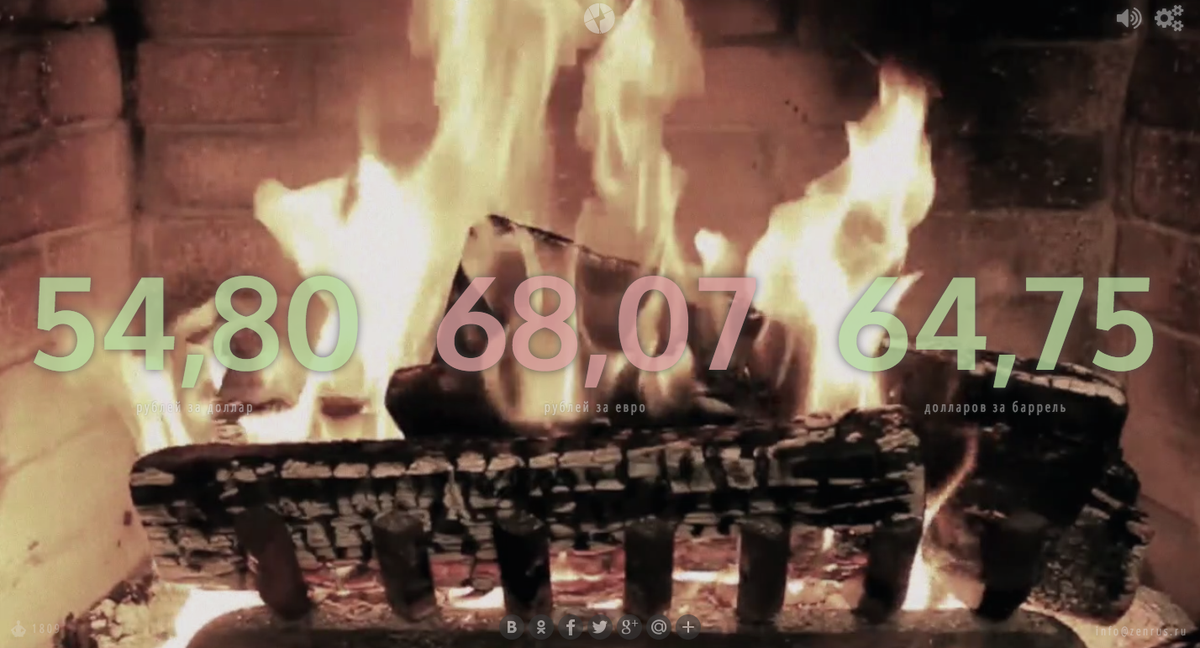

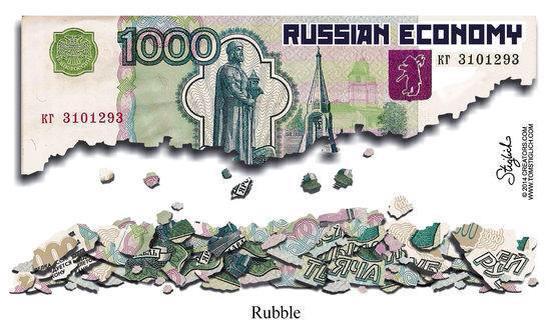

 Russian Central Bank hikes key interest rate to 17% to halt ruble roil
Russian Central Bank hikes key interest rate to 17% to halt ruble roil
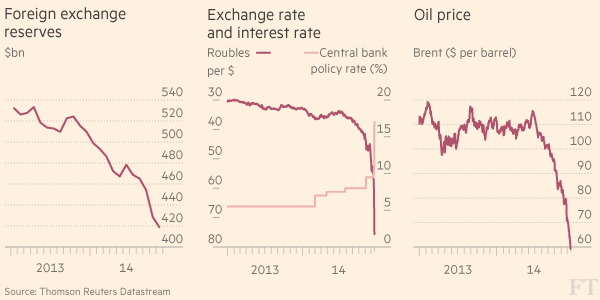




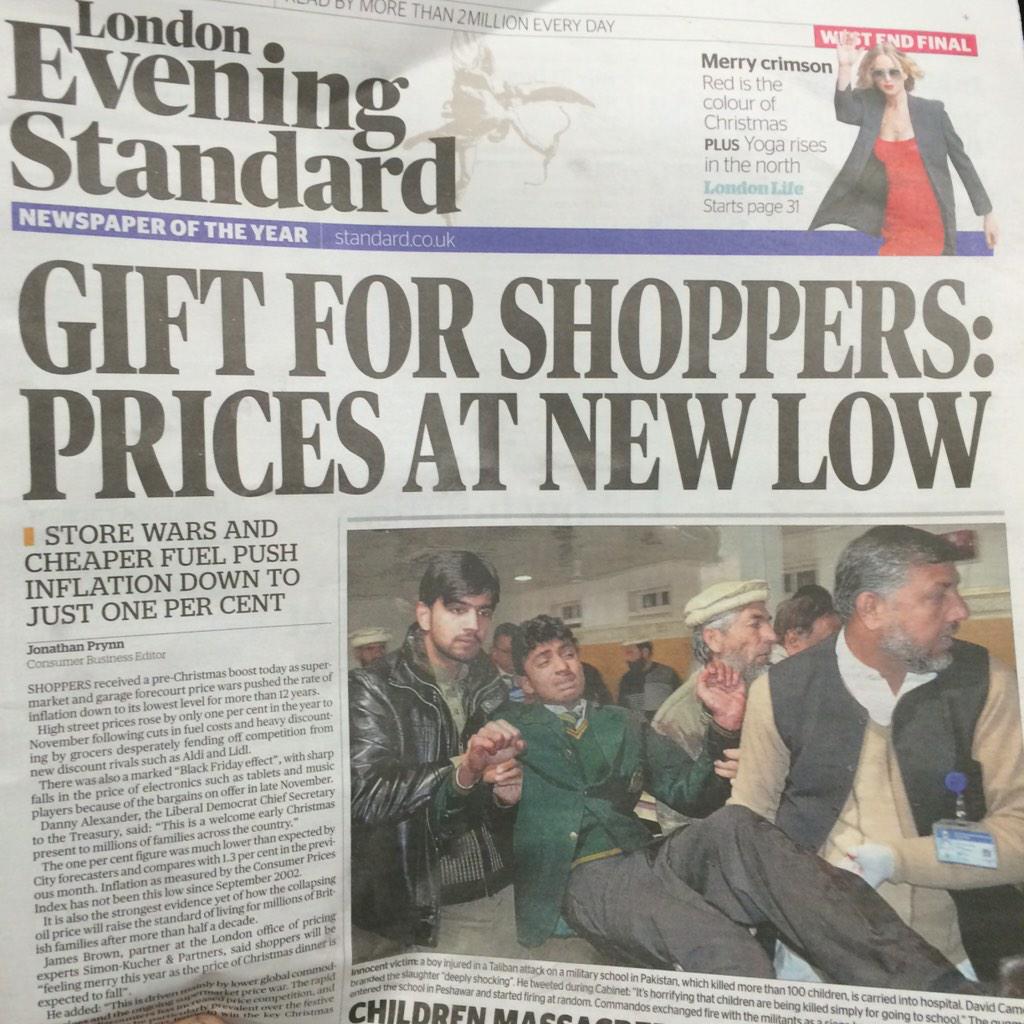

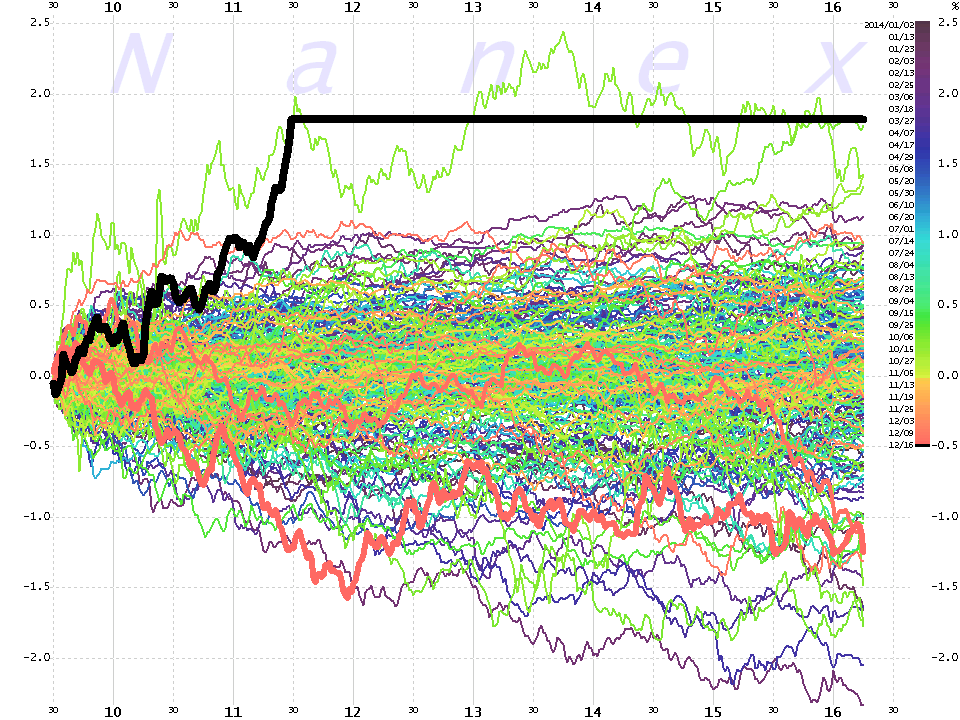

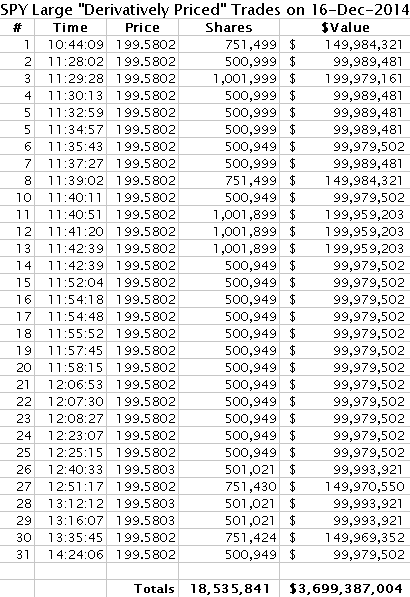
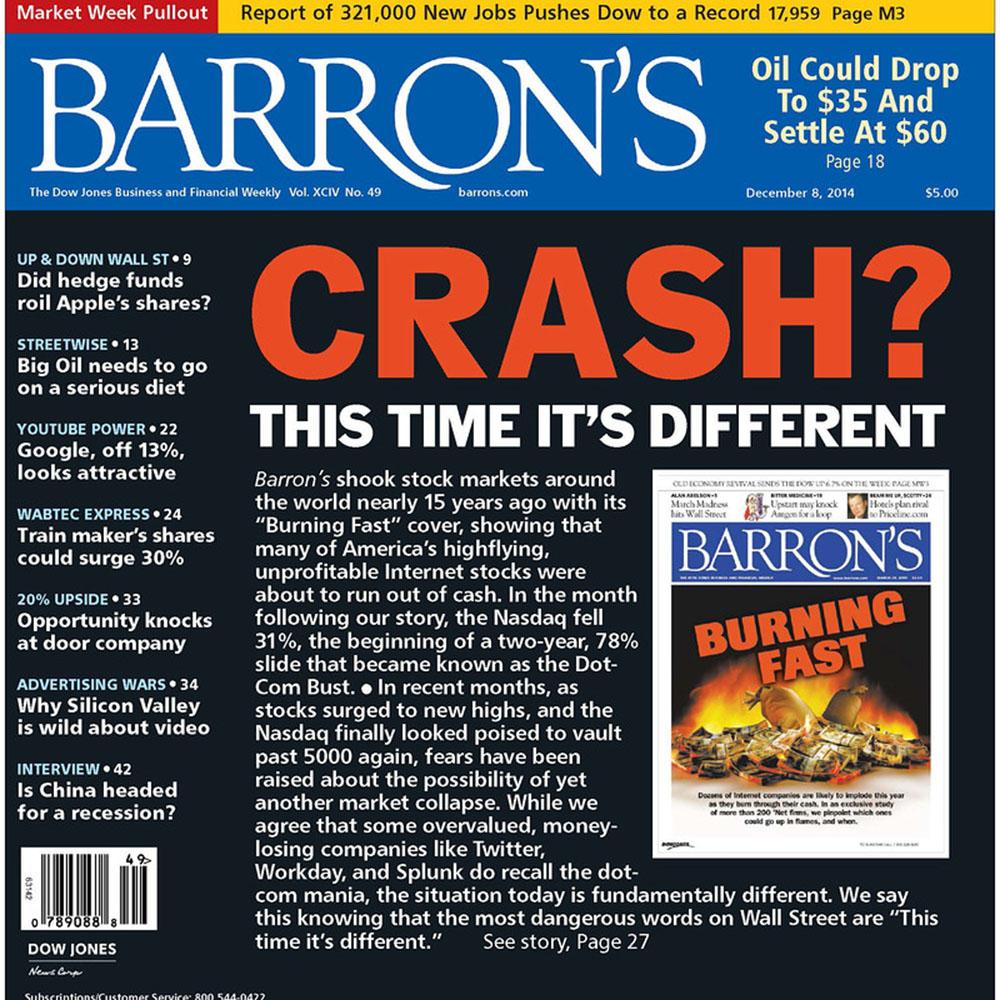



No comments:
Post a Comment
Note: only a member of this blog may post a comment.